The Gastric Bypass Cost in Tunisia approximately starts from TND 18660 (USD 6000)
Gastric bypass treatment, termed as Roux-en-Y gastric bypass is gaining grounds as a popular procedure for losing excess weight. The procedure essentially helps in reducing the appetite of the candidate by providing an alternative way for managing the consumed food in stomach and intestines. The treatment has showcased high success rates and has helped candidates lose 30% to 38% of the excessive body mass. The loss in weight at such a rate is possible as post-operation, the candidate begins to experience fullness and thus, has reduced urge to eat frequently.
Gastric bypass is performed on people who are diagnosed with diabetes (Type II), sleep apnea,, hypertension, BMI (Body Mass Index) more than 40, which causes morbid obesity. Gastric bypass treatment divides the stomach into two halves: the upper part (smaller in size), and the lower part referred to as the remnant (comparatively larger in size). Both the parts are the connected to the small intestines after necessary rearrangement. The procedure helps in reducing the amount of absorption of ingested food and thus, prevents the candidates in gaining unnecessary weight, which might otherwise lead to a number of diseases.
Though highly efficient, approximately 85% to 90% candidates undergoing Gastric Bypass Treatment have reported to have experience a minimum of one symptom. In severe cases, hospitalization has also been necessary. Probable symptoms are:
Gastric bypass surgery cost varies from a minimum of $18,000 to a maximum of $35000. Such a variation is due to several key factors that affect the cost of the procedure. Some of the most important factors are:
| Country | Cost | Local_currency |
|---|---|---|
| Czechia | USD 11000 | Czechia 249590 |
| Greece | USD 6050 | Greece 5566 |
| India | USD 7000 | India 582050 |
| Israel | USD 17500 | Israel 66500 |
| Lebanon | USD 9000 | Lebanon 135049950 |
| Lithuania | USD 5240 | Lithuania 4821 |
| Malaysia | USD 8700 | Malaysia 40977 |
| Poland | USD 3120 | Poland 12605 |
| South Korea | USD 16300 | South Korea 21885847 |
| Spain | USD 23620 | Spain 21730 |
| Thailand | USD 13070 | Thailand 465946 |
| Tunisia | USD 6000 | Tunisia 18660 |
| Turkey | USD 5320 | Turkey 160345 |
| United Arab Emirates | USD 11020 | United Arab Emirates 40443 |
| United Kingdom | USD 10880 | United Kingdom 8595 |
Treatment cost

Some of the key inclusions which we provide as additional benefits of the package are:
We provide packages at economical prices with a number of additional benefits which make it a better opportunity than spending actual hospital costs with singular benefits. Gastric Bypass Surgery refers to a technique, which involves the stomach breaking down into a small upper pouch and a much larger remnant pouch and connecting the newly created pouches directly to the small intestine., We are offering an impressive package for Gastric Bypass Surgery at Medicana Camlica Hospital, Turkey. The package covers all the benefits with some additional advantages.

Some of the key inclusions which we provide as additional benefits of the package are:
With us, you are sure to receive all the benefits at competitive prices which is a better choice than paying actual hospital costs. Gastric Bypass Surgery refers to a technique, which involves the stomach breaking down into a small upper pouch and a much larger remnant pouch and connecting the newly created pouches directly to the small intestine., We are offering an impressive package for Gastric Bypass Surgery at Pushpawati Singhania Research Institute, India. The package covers all the benefits with some additional advantages.

Apart from in-detail treatment procedures available, Chirurgie Pro located in La Marsa, Tunisia has a wide variety of facilities available for International Patients. Some of the facilities which are provided by them are Accommodation, Airport Transfer, Choice of Meals, Interpreter, SIM, TV inside room. Also listed below are some of the most prominent infrastructural details:

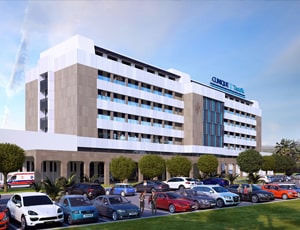
Taoufik Clinique located in Tunis, Tunisia is accredited by JCI. Also listed below are some of the most prominent infrastructural details:
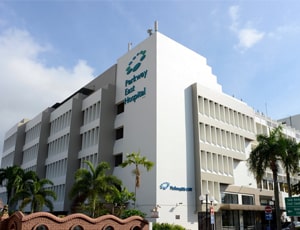
Parkway East Hospital located in Joo Chiat Pl, Singapore is accredited by JCI. Also listed below are some of the most prominent infrastructural details:
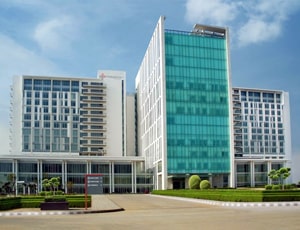
Types of Gastric Bypass in Medanta - The Medicity and its associated cost
| Treatment Option | Approximate Cost Range (USD) | Approximate Cost Range (INR) |
|---|---|---|
| Gastric Bypass surgery (overall) | 7242 - 10841 | 611185 - 875105 |
| Roux-en-Y Gastric Bypass (RYGB) | 8362 - 10867 | 693778 - 886390 |
| Mini Gastric Bypass (MGB) | 7193 - 9094 | 606318 - 728752 |
| Single Anastomosis Gastric Bypass | 7715 - 10149 | 632943 - 846725 |
| Loop Gastric Bypass | 7443 - 9597 | 587417 - 774240 |
DOCTORS IN 14 SPECIALITIES
FACILITIES & AMENITIES
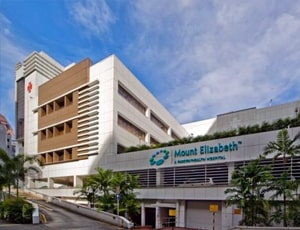
Mount Elizabeth Hospital located in Singapore, Singapore is accredited by JCI. Also listed below are some of the most prominent infrastructural details:
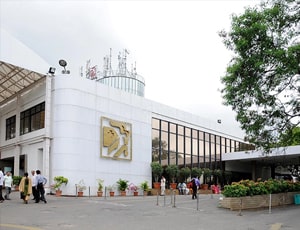
Types of Gastric Bypass in Apollo Hospitals and its associated cost
| Treatment Option | Approximate Cost Range (USD) | Approximate Cost Range (INR) |
|---|---|---|
| Gastric Bypass surgery (overall) | 7357 - 10618 | 595182 - 868185 |
| Roux-en-Y Gastric Bypass (RYGB) | 8291 - 10833 | 680144 - 893350 |
| Mini Gastric Bypass (MGB) | 7306 - 9175 | 600588 - 740665 |
| Single Anastomosis Gastric Bypass | 7820 - 10182 | 647993 - 832414 |
| Loop Gastric Bypass | 7177 - 9477 | 596093 - 777186 |
DOCTORS IN 14 SPECIALITIES
FACILITIES & AMENITIES
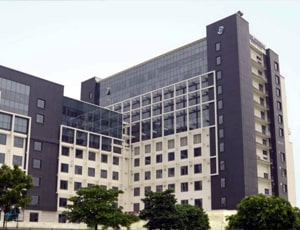
Types of Gastric Bypass in Venkateshwar Hospital and its associated cost
| Treatment Option | Approximate Cost Range (USD) | Approximate Cost Range (INR) |
|---|---|---|
| Gastric Bypass surgery (overall) | 6566 - 9689 | 540487 - 787593 |
| Roux-en-Y Gastric Bypass (RYGB) | 7644 - 9682 | 624497 - 787253 |
| Mini Gastric Bypass (MGB) | 6600 - 8118 | 540363 - 663428 |
| Single Anastomosis Gastric Bypass | 7132 - 9143 | 580181 - 747533 |
| Loop Gastric Bypass | 6581 - 8662 | 543182 - 710445 |
DOCTORS IN 13 SPECIALITIES
FACILITIES & AMENITIES
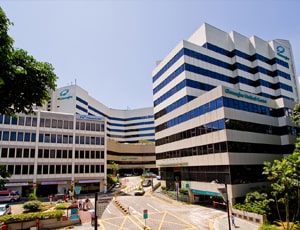
Gleneagles Hospital located in Napier Road, Singapore is accredited by JCI. Also listed below are some of the most prominent infrastructural details:
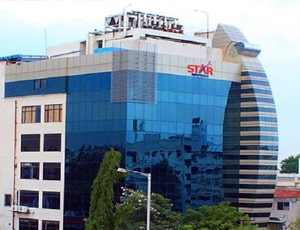
Types of Gastric Bypass in Star Hospitals and its associated cost
| Treatment Option | Approximate Cost Range (USD) | Approximate Cost Range (INR) |
|---|---|---|
| Gastric Bypass surgery (overall) | 6089 - 8996 | 496789 - 721584 |
| Roux-en-Y Gastric Bypass (RYGB) | 6992 - 8766 | 574831 - 738982 |
| Mini Gastric Bypass (MGB) | 6017 - 7530 | 494108 - 614185 |
| Single Anastomosis Gastric Bypass | 6460 - 8517 | 529396 - 697834 |
| Loop Gastric Bypass | 6018 - 7990 | 501069 - 657455 |
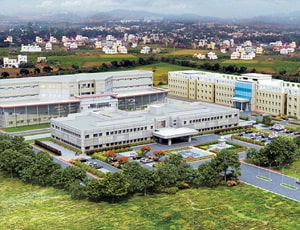
Types of Gastric Bypass in Global Health City and its associated cost
| Treatment Option | Approximate Cost Range (USD) | Approximate Cost Range (INR) |
|---|---|---|
| Gastric Bypass surgery (overall) | 7443 - 10750 | 600519 - 867166 |
| Roux-en-Y Gastric Bypass (RYGB) | 8333 - 10727 | 702524 - 858697 |
| Mini Gastric Bypass (MGB) | 7436 - 8851 | 590431 - 741456 |
| Single Anastomosis Gastric Bypass | 7825 - 10314 | 659027 - 841298 |
| Loop Gastric Bypass | 7194 - 9379 | 595416 - 796538 |
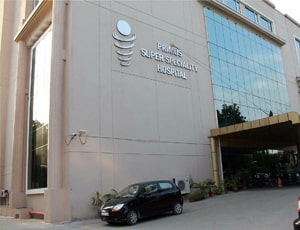
Types of Gastric Bypass in Primus Super Speciality Hospital and its associated cost
| Treatment Option | Approximate Cost Range (USD) | Approximate Cost Range (INR) |
|---|---|---|
| Gastric Bypass surgery (overall) | 6599 - 9610 | 540689 - 788323 |
| Roux-en-Y Gastric Bypass (RYGB) | 7590 - 9642 | 622620 - 789663 |
| Mini Gastric Bypass (MGB) | 6620 - 8147 | 539343 - 666730 |
| Single Anastomosis Gastric Bypass | 7123 - 9138 | 580450 - 751846 |
| Loop Gastric Bypass | 6593 - 8642 | 540900 - 709440 |
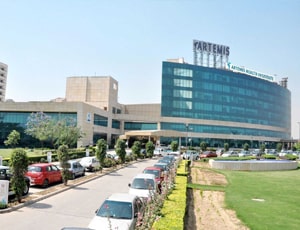
Types of Gastric Bypass in Artemis Health Institute and its associated cost
| Treatment Option | Approximate Cost Range (USD) | Approximate Cost Range (INR) |
|---|---|---|
| Gastric Bypass surgery (overall) | 7398 - 10767 | 603790 - 894653 |
| Roux-en-Y Gastric Bypass (RYGB) | 8278 - 10771 | 682363 - 889863 |
| Mini Gastric Bypass (MGB) | 7467 - 9096 | 605703 - 726476 |
| Single Anastomosis Gastric Bypass | 7810 - 10185 | 643199 - 817895 |
| Loop Gastric Bypass | 7452 - 9595 | 596036 - 781573 |
DOCTORS IN 15 SPECIALITIES
FACILITIES & AMENITIES
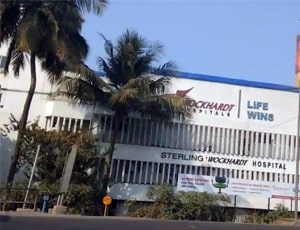
Types of Gastric Bypass in Sterling Wockhardt Hospital and its associated cost
| Treatment Option | Approximate Cost Range (USD) | Approximate Cost Range (INR) |
|---|---|---|
| Gastric Bypass surgery (overall) | 6628 - 9631 | 541007 - 787248 |
| Roux-en-Y Gastric Bypass (RYGB) | 7581 - 9655 | 627174 - 790157 |
| Mini Gastric Bypass (MGB) | 6609 - 8086 | 540756 - 662923 |
| Single Anastomosis Gastric Bypass | 7125 - 9104 | 580265 - 752376 |
| Loop Gastric Bypass | 6577 - 8643 | 539152 - 707267 |
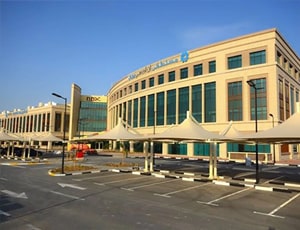
Types of Gastric Bypass in NMC Royal Hospital, Khalifa City and its associated cost
| Treatment Option | Approximate Cost Range (USD) | Approximate Cost Range (AED) |
|---|---|---|
| Gastric Bypass surgery (overall) | 12568 - 14948 | 45185 - 56548 |
| Roux-en-Y Gastric Bypass (RYGB) | 13214 - 13646 | 48491 - 48559 |
| Mini Gastric Bypass (MGB) | 12514 - 14414 | 44892 - 53721 |
| Single Anastomosis Gastric Bypass | 12860 - 14928 | 46762 - 55101 |
| Loop Gastric Bypass | 13213 - 14609 | 48072 - 52010 |
DOCTORS IN 11 SPECIALITIES
FACILITIES & AMENITIES
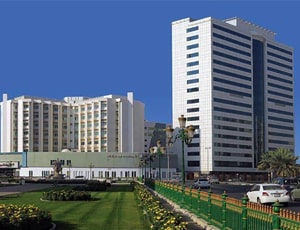
Types of Gastric Bypass in NMC Royal Hospital Sharjah and its associated cost
| Treatment Option | Approximate Cost Range (USD) | Approximate Cost Range (AED) |
|---|---|---|
| Gastric Bypass surgery (overall) | 12269 - 15053 | 44512 - 56697 |
| Roux-en-Y Gastric Bypass (RYGB) | 12883 - 13230 | 48153 - 50486 |
| Mini Gastric Bypass (MGB) | 12483 - 14505 | 45083 - 52923 |
| Single Anastomosis Gastric Bypass | 12768 - 14974 | 48461 - 54723 |
| Loop Gastric Bypass | 13192 - 14170 | 48987 - 52974 |
DOCTORS IN 11 SPECIALITIES
FACILITIES & AMENITIES
Nowadays, weight management is the biggest problem for people from all age groups. Weight loss surgery options are preferred when alternative means of weight loss such as exercise, diet management, and so on fail to work.
Gastric bypass, also known as Roux-en-Y Gastric Bypass, is one of the most popular weight loss surgery options during which the size of the stomach is decreased. The reduced size of the stomach allows for reduced consumption of food by the patient, which in turn, results in gradual weight loss.
Other popular weight loss surgery options include:
Of all the bariatric procedures, gastric bypass is the most preferred options for weight loss because of the greater possibility of positive outcomes. Moreover, there are no major side effects of gastric bypass.
What are the criteria for gastric bypass surgery?
Not everyone is an ideal candidate for gastric bypass surgery. People with a body mass index (BMI) of 40 or more and with a history of heart disease, obesity, and obstructive sleep apnea are mostly recommended gastric bypass surgery.
Gastric bypass surgery is performed in two phases:
Phase I
Phase II: Bypass
There is a significant weight loss in the first month after the surgery, which gradually decreases. To maintain the intensity of weight loss, the patient must follow a strict exercise routine and diet.
The following medical conditions usually improve after gastric bypass surgery:
Ask your healthcare adviser for the best multiple options and choose the one that meets your expectations
USD 6000 is the starting cost of Gastric Bypass Surgery in Tunisia. While there are wide range of hospitals offering Gastric Bypass, international patients should always seek TEMOS-Certified Hospitals in Tunisia for the best results.
The cost of Gastric Bypass in Tunisia may differ from one medical facility to the other. There are many hospital that cover the cost of pre-surgical investigations of the patient in the treatment package. The treatment cost usually includes the expenses related to hospitalization, surgery, nursing, medicines, and anesthesia. A prolonged hospital stay due to delayed recovery, new diagnosis and complications after surgery may increase the cost of Gastric Bypass in Tunisia.
Gastric Bypass in Tunisia is offered by multiple hospitals across the country. The following are some of the most renowned hospitals for Gastric Bypass in Tunisia:
The recovery of the patient many vary, depending on several factors. However, on an average, patient is supposed to stay for about 14 days in the country after discharge. During this time, the patient undergoes medical tests and consultations. this is to ensure that the treatment was successful and the patient us safe to return.
Apart from the Gastric Bypass cost, there are a few other daily charges that the patient may have to pay. These are the charges for daily meals and accommodation outside the hospital. The per day cost in this case may start from USD 50 per person.
The following are some of the best cities for Gastric Bypass in Tunisia:
The average duration of stay at the hospital after Gastric Bypass is about 3 days for proper care and monitoring. The patient is subjected to several biochemistry and radiological scans to see that everything is okay and the recovery is on track. After making sure that patient is clinically stable, discharge is planned.
There are more than 2 hospitals that offer Gastric Bypass in Tunisia. The above mentioned hospitals have the required infrastructure and a dedicated unit where patients can be treated. Apart from good services, the hospitals are known to follow all standard and legal guidelines as dictated by the local medical affairs body or organization.